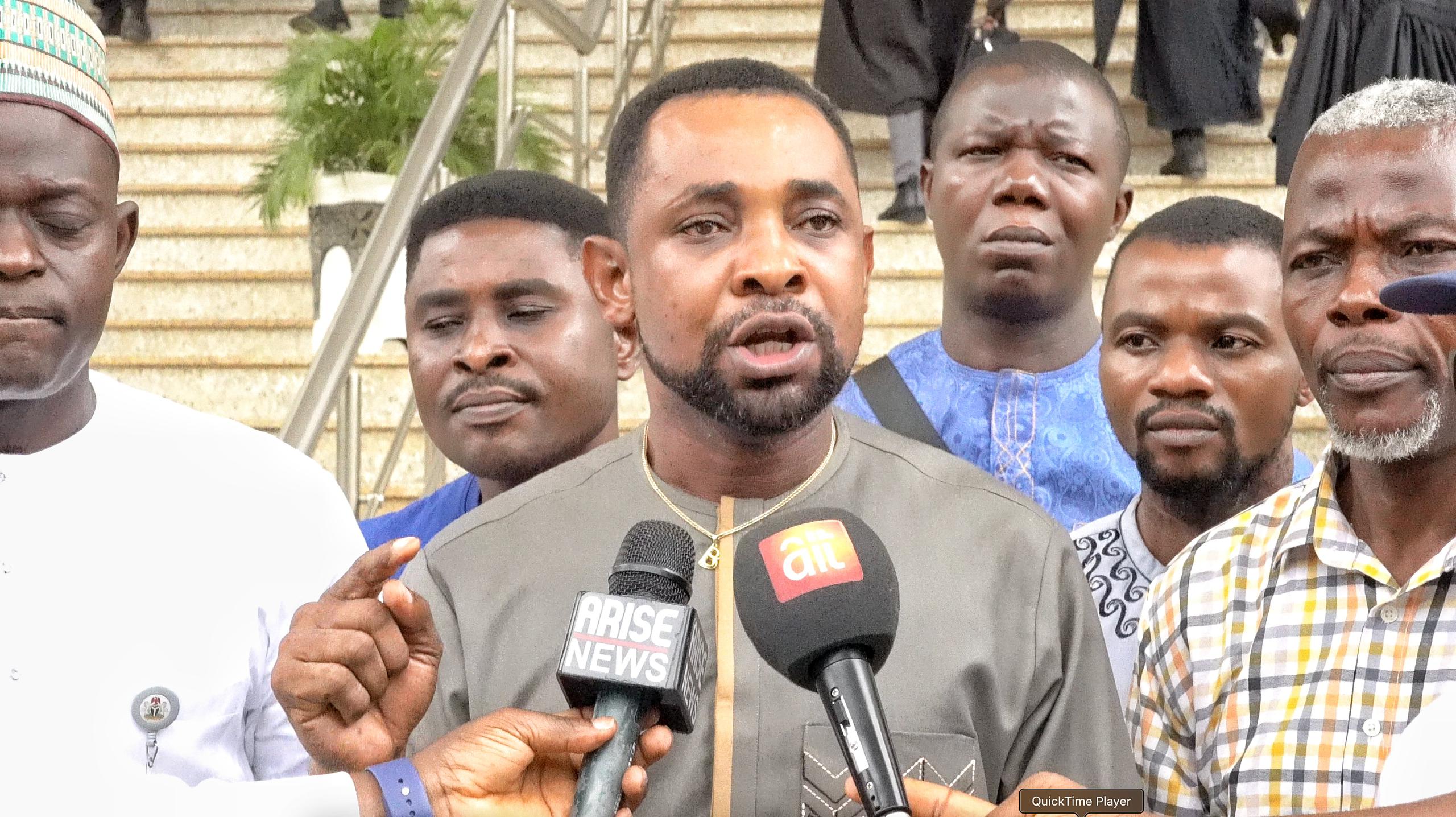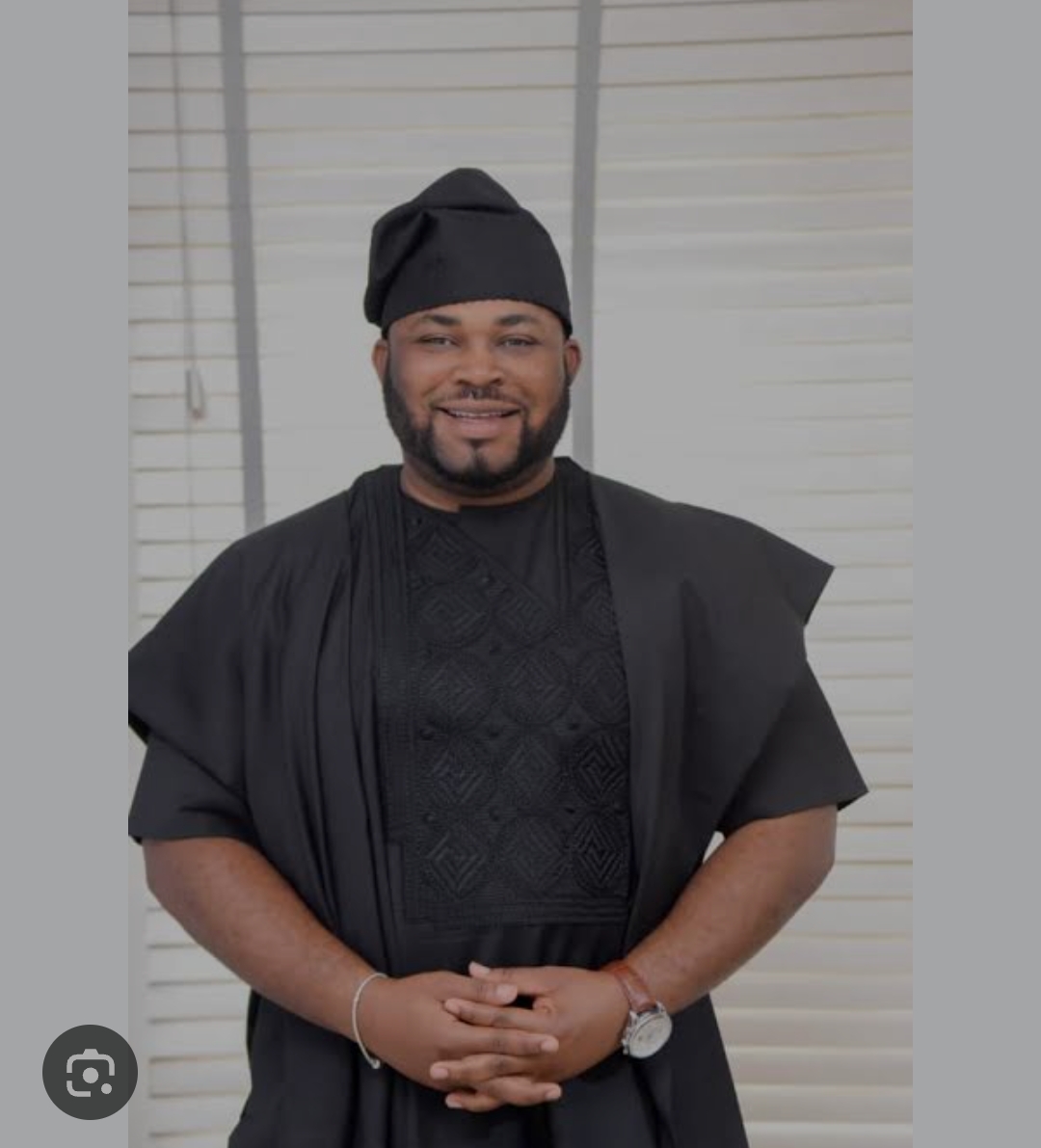celebrity radar - gossips
Court Remands Prince Humble, Micheal Okoh, Prof Oma, Others in Kuje As Jesam’s Legal Team Clears The Air (Video)

Court Remands Prince Humble, Micheal Okoh, Prof Oma, Others in Kuje As Jesam’s Legal Team Clears The Air (Video)
celebrity radar - gossips
COAS Ties Battlefield Success to Constitutional Allegiance and Civil Authority

COAS Ties Battlefield Success to Constitutional Allegiance and Civil Authority
During his operational visit to the 4 Special Forces Command in Doma, the Chief of Army Staff, Lieutenant General Waidi Shaibu, delivered a stark message, intertwining the elite unit’s combat effectiveness with an unshakeable pledge of allegiance to President Bola Ahmed Tinubu and the Nigerian Constitution.
While directing troops to intensify high-impact operations, the COAS made it clear that their mission is a direct expression of their constitutional oath. He reaffirmed that the Nigerian Army’s primary role is to defend the nation against external aggression and provide aid to civil authority, all in strict adherence to the supreme law of the land and under the leadership of the Commander-in-Chief.
This emphasis on loyalty served as a powerful backdrop to his operational directives. By linking the “decisive defeat” of terrorists to the Army’s constitutional mandate and loyalty to the President, Lt. Gen. Shaibu sought to galvanise the Special Forces, framing their upcoming engagements not just as military objectives but as a sacred duty to the democratically elected government and the nation’s founding charter. The message was clear: their fight is a fight for the Constitution and the president it empowers.
celebrity radar - gossips
Mercy Johnson Okojie, Purity Okojie Lead Campaign for Girls Tag’s All-in-One Period Care Kit

*Mercy Johnson Okojie, Purity Okojie Lead Campaign for Girls Tag’s All-in-One Period Care Kit
iBlend Services, appointed Regional Agency for Girls Tag alongside its PR and marketing firm, Eddie MPR, has officially launched Girls Tag, described as Nigeria’s first all-in-one period care pack designed for girls aged nine and above.
The initiative seeks to tackle persistent gaps in menstrual health education and access to sanitary products in Nigeria, where many girls experience their first period with little preparation or guidance. According to the promoters, Girls Tag was created to eliminate the fear, confusion, and stigma often associated with puberty, replacing them with confidence, comfort, and dignity.
Beyond hygiene, the brand positions itself as a supportive care system for both girls and parents, offering tools and language to guide families through early puberty conversations.
To strengthen its reach, Girls Tag announced a strategic ambassadorial partnership with Nollywood actress and philanthropist Mercy Johnson Okojie and her daughter, Purity Okojie. The mother-daughter collaboration is intended to reflect authenticity and relatability for Nigerian families navigating similar experiences.
Speaking on the partnership, the leadership of iBlend Services expressed confidence that the ambassadors’ real-life connection would resonate deeply with mothers and daughters nationwide.
Mercy Johnson Okojie, in her remarks, described the initiative as a natural fit, noting that puberty can be an anxious period for both parents and children. She also revealed that her newly authored puberty guide, Youberty, will be included in every Girls Tag kit. The book is designed to help boys and girls aged 10 to 13 better understand the physical and emotional changes that come with growing up.
Each Girls Tag care pack contains premium sanitary pads in various sizes, overnight period pants, panty liners, disposable sanitary bags, a discreet sanitary purse, and a copy of Youberty. The kit is tailored to support first-time and early period experiences while promoting proper hygiene and self-care.
The company disclosed that the product will be available nationwide in Q2 2026 at select retail stores, pharmacies, and malls, with direct delivery options through its website and social media handle, @girlstag.ng.
With its combined focus on education, dignity, and accessibility, Girls Tag aims to reshape menstrual health support for young girls across Nigeria.
celebrity radar - gossips
DSS Invites Ogun LG Chairman, Alebiosu and others Over Attack At APC Stakeholders Meeting

*DSS Invites Ogun LG Chairman, Alebiosu and others Over Attack At APC Stakeholders Meeting*
The Department of State Services (DSS) Abeokuta on Monday invited Ijebu Ode local government Chairman, Hon Dare Alebiosu, and some political thugs alleged to have caused disturbance, incitement and physical attack during an APC stakeholders meeting few days to Ward Congress in the area.
A reliable security source disclosed that an aide of the Governor who was reportedly attacked during the stakeholders meeting was said to have petitioned the DSS.
According to the source, there have been growing concerns over the activities of the LG Chairman, who was alleged to be backing cultists and using them as a tool for harassment and intimidation in the community.
As it was reported, the LG boss was accused to have openly confronted and accused the Governor’s aide for identifying some of the cultists to DSS officials, while one of the cultist was said to have hit their target in the face and removing his medicated glasses. The swift and professional intervention of the Men of DSS quickly deescalated the matter and the meeting went on to a conclusive end.
The meeting which held at the residence of Chief Okuboyejo, the Governor’s Advisory Council Chairman at GRA Ijebu ode became tensed, after the LG chairman invaded the private premises of the old man with a large number of cultists which some of them were allegedly believed to be armed.
The source added that the case is presently with the DSS, while the petitioner has also submitted various evidence against the LG Chairman.
In another turn of event, Commisoner for Urban and regional planning was harassed and robbed, so also the former SLG to the Local govt also almost lost his life as he was attacked with cutlass by thugs who were allegedly said to be led by Dapo Adebajo, he was hospitalized. The case has also been reported to the DSS and Police as at the time of filling this report.
-

 celebrity radar - gossips7 months ago
celebrity radar - gossips7 months agoWhy Babangida’s Hilltop Home Became Nigeria’s Political “Mecca”
-

 society6 months ago
society6 months agoReligion: Africa’s Oldest Weapon of Enslavement and the Forgotten Truth
-

 society7 months ago
society7 months agoPower is a Loan, Not a Possession: The Sacred Duty of Planting People
-

 news3 months ago
news3 months agoWHO REALLY OWNS MONIEPOINT? The $290 Million Deal That Sold Nigeria’s Top Fintech to Foreign Interests








